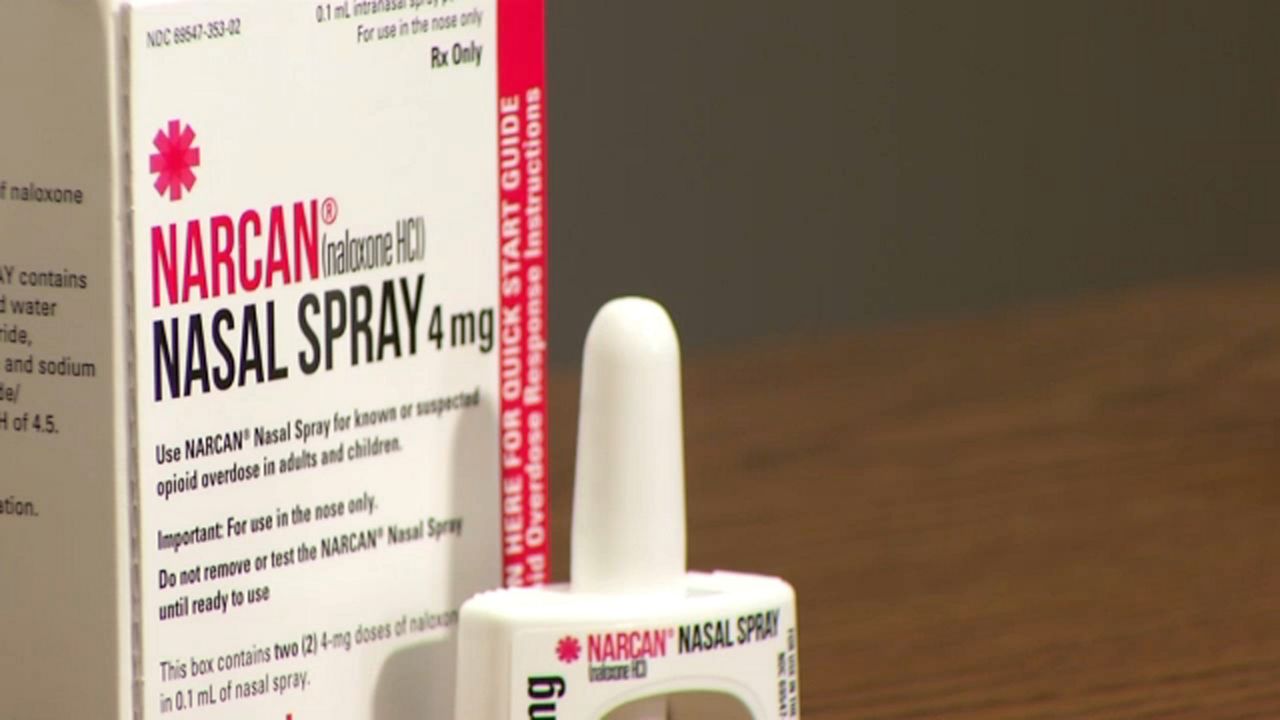Police believe that fentanyl is promoting the rise in overdose
BREVARD COUNTY, Florida – As the country continues to grapple with the COVID-19 pandemic, the opioid epidemic has not only not gone away, but has gotten worse.
Data from the Centers for Disease Control and Prevention shows that more than 93,000 people died from drug overdoses in the United States last year, an increase of nearly 30%.
What you need to know
- Overdose cases and deaths have risen across the country
- Titusville is well on its way to more than double the number of overdoses
- Several agencies credit NARCAN nasal spray for preventing overdose deaths from even higher
Florida’s forecast cases when compared between December 2019 and December 2020 showed a 37% increase. These trends can be seen at the more detailed county and even city levels.
According to the Brevard County’s District 18 Medical Examiner Office, the following numbers reflect deaths from overdose in recent years:
- 2017 – 231
- 2018 – 263
- 2019 – 330
- 2020 – 384
- 2021 – 56 (excluding cases that are still pending; no precise presentation of the previous figures)
In the city of Titusville alone, there have been a total of more than 100 overdoses, including non-fatal overdoses. Six of these cases occurred over the weekend, with two fatalities.
Titusville Police Cmdr. Jeff King said these deaths related to the synthetic opioid fentanyl.
“The combination with fentanyl killed them where they were,” he said. “So there is no acceptable level of drug experimentation.”
King sadly said the city is currently on track to more than double the number of drug overdoses in 2021 compared to 2020 (69).
He said his and other law enforcement agencies are working to prosecute those who bring the drugs into the community.
“It’s very possible, it’s just a matter of investing investigative hours, getting the job done, tracking where you were last and who you last called,” King said. “We have a lot of things and resources on hand to use, and we’re going to all of these efforts to see if we can trace them.”
For those who made it to the other side of addiction, watching the numbers rise has been difficult. Charles Mason, known to most as Buddy, said the roadblocks created by the pandemic did not help the situation.
“I really believe recovery means getting in touch with other people, and COVID has stopped us from doing that,” he said. “It had isolated us, alone in the house, maybe with our children, homeschooling. A lot of stress, a lot of pressure. ”
Mason was homeless a decade ago and on his own addiction journey when he came to Space Coast Recovery, a licensed substance abuse treatment center that offers adult men a residential program – with treatment, shelter, meals, and group therapy.
“Some of us got a nudge from the judge or some of us just got tired of it,” he said. “And I think when it comes from within that we’re ready to quit, it works best.”
The organization has partnered with the Florida Department of Children and Families to help deliver NARCAN to prevent overdoses and death.
“So now we can give two of these boxes to our clients upon discharge and also give them out to anyone who comes for interviews and who we don’t have a place for, or maybe” not the criteria for an inpatient center like ours, “said Mason.
Back at TPD, King said that having NARCAN on their end is also a great help.
“If we didn’t have the NARCAN on hand, the death toll at this point would be pretty high,” he said.
He added that they are doing everything possible to educate the public, starting with the youth.
“It will likely be more difficult for those who have an existing problem,” he said. “So it’s not that we don’t provide resources there, but if we can stop people in the first place, that’s exactly the right first step.”



Comments are closed.